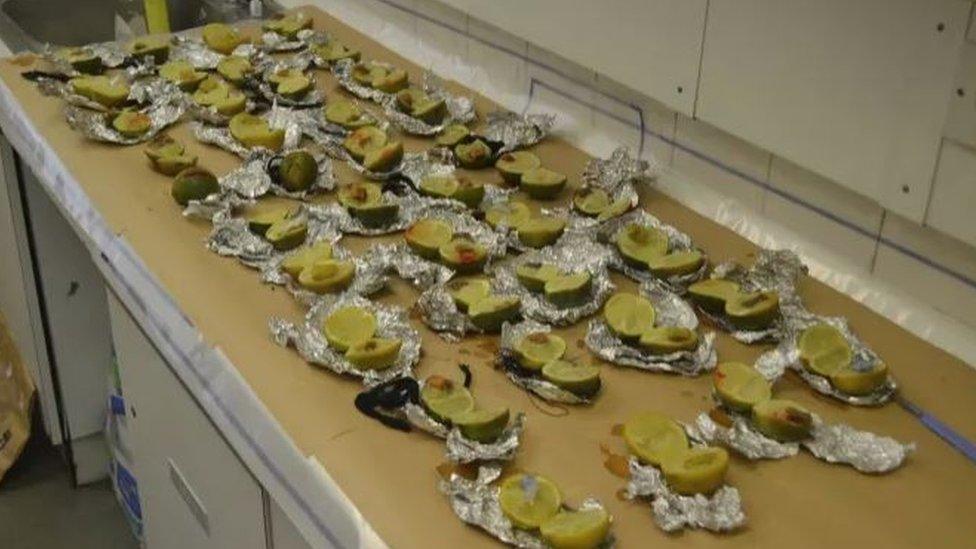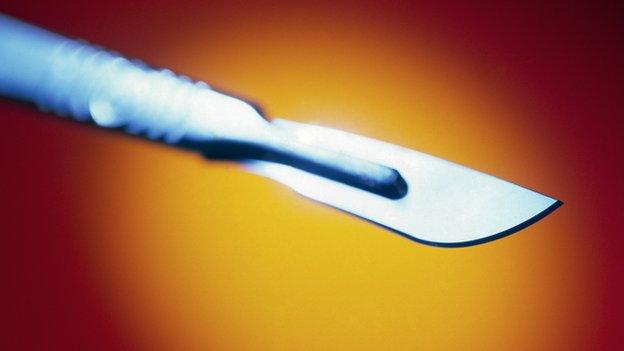Family court judge will not reopen FGM case
- Published

The woman and her ex-partner went on trial at the Old Bailey in 2019
A family court judge has refused to reopen the case of a man accused of subjecting a three-year-old girl to female genital mutilation (FGM) after he was cleared by a jury.
In April 2018, Judge Carol Atkinson said she was "satisfied" the man and his ex-partner, the child's mother, were both involved.
The mother was later convicted and the man acquitted at a criminal trial.
Judge Atkinson said she remained sure her original decision was right.
The 37-year-old woman, who came from Uganda and lived in Walthamstow, east London, was the first person in the UK to be convicted of FGM - intentionally altering or injuring the female external genitalia for non-medical reasons.
She was jailed for 13 years following a trial at the Old Bailey in 2019, and for an additional two years for offences relating to indecent images and extreme pornography.
During the trial, the woman claimed that in August 2017 her daughter climbed up to get a biscuit and "fell on metal and it's ripped her private parts".

Police said they found evidence of "witchcraft" in the woman's home, including limes stuffed with written curses
Prior to the criminal trial, Judge Atkinson oversaw a private hearing at the East London Family Court, having been asked to make findings by council social services bosses with responsibility for the girl's welfare.
She concluded in April 2018, both the woman and man had been involved and the girl had suffered injuries that amounted to mutilation.
Her ruling had been kept under wraps pending the outcome of the criminal proceedings at the Old Bailey in February.
In April 2019, Judge Atkinson said her ruling could be revealed.
In the wake of his acquittal she was asked by the 43-year-old Ghanaian man who cannot be identified for legal reasons, to reconsider the case.
However in a follow-up ruling, Judge Atkinson said she had reviewed evidence and could see no reason to change her original decision.
Judge Atkinson made findings based on the balance of probabilities in a bid to help social workers make decisions about the girl's future care. Jurors returned verdicts on a beyond-reasonable-doubt basis.
- Published8 March 2019

- Published1 February 2019

- Published22 July 2014
